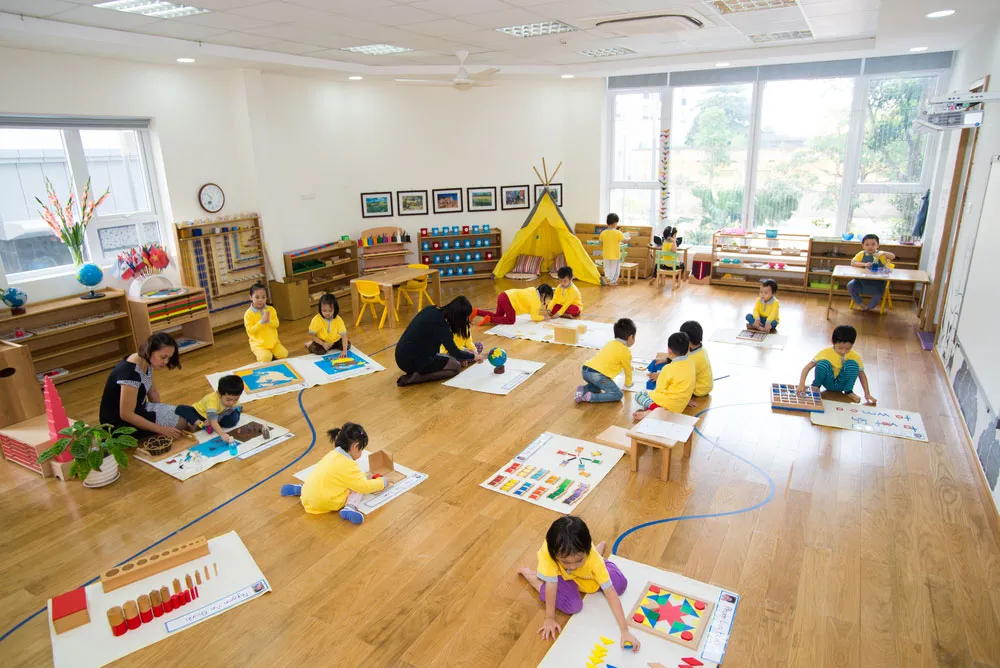Choosing the right preschool for your child can feel overwhelming, especially with San Antonio’s diverse educational landscape. Parents face a fundamental decision between two distinct approaches: Montessori and traditional preschool education. For families seeking reliable local Montessori programs, understanding these differences becomes essential for making an informed choice that aligns with your child’s needs and learning style.

Both educational philosophies offer valuable benefits, but they operate on fundamentally different principles. While traditional preschools follow teacher-led instruction with structured curricula, Montessori schools emphasize child-directed learning through carefully prepared environments.
Core Philosophy: Two Different Worlds
The most striking difference lies in each approach’s foundational beliefs about how children learn best. Montessori education, developed by Dr. Maria Montessori, operates on five core principles: respect for the child, the absorbent mind, sensitive periods, the prepared environment, and auto-education. This philosophy views children as naturally curious learners who thrive when given freedom within structured boundaries.
Traditional preschools typically follow a more conventional educational model where teachers plan and deliver predetermined curricula to entire classes simultaneously. The focus centers on preparing children for conventional elementary school expectations through structured group activities and teacher-guided instruction.
Teacher Roles: Guide vs. Instructor
In Montessori classrooms, teachers function as guides who observe children closely and offer individualized support when needed. They prepare the environment with age-appropriate materials but allow children to choose their own activities and work at their own pace. This approach fosters independence and self-discipline as children learn to make decisions about their learning journey.
Traditional preschool teachers take a more active instructional role, leading group lessons and activities while providing direct guidance to the entire class. They plan structured curricula that include specific subjects like language arts, math, and science, ensuring all children participate in the same activities simultaneously.
Learning Environment: Open Exploration vs. Structured Centers
Montessori classrooms feature open floor plans with materials arranged on low, accessible shelves. The environment is carefully designed to promote independent movement and self-directed exploration. Mixed-age classrooms encourage peer learning, with older children naturally mentoring younger ones.
Traditional preschool environments typically organize space into designated activity centers – reading areas, art stations, and play zones. Children rotate between teacher-managed stations according to predetermined schedules, with age-separated classrooms being the norm.
Learning Materials and Methods
Montessori programs utilize specially designed, self-correcting materials that allow children to discover and fix their own mistakes. These research-verified tools target specific developmental stages and cover practical life skills, language, mathematics, and cultural studies through hands-on exploration.
Traditional preschools often use worksheets, flashcards, and conventional educational toys to teach early literacy and numeracy skills. Activities focus more on play-based learning with teacher-guided instruction to introduce concepts like colors, letters, and numbers.
Individual vs. Group Learning Approaches
Montessori education emphasizes individualized learning paths where children work at their own developmental pace. Students can repeat activities until they achieve mastery, and the multi-age environment creates natural opportunities for peer teaching and collaboration when children choose to work together.
Traditional preschools primarily use whole-class instruction where all children of the same age follow identical curricula and timelines. Group activities and collective learning experiences prepare children for conventional school structures they’ll encounter later.
Assessment and Progress Tracking
Montessori schools rely on ongoing observation and portfolio-based documentation rather than formal testing. Teachers focus on the learning process and individual progress, encouraging self-assessment through the use of self-correcting materials.
Traditional preschools typically employ more formal evaluations, including standardized assessments and regular testing of specific skills. Progress gets measured against age-appropriate benchmarks and grade-level expectations.
Which Approach Fits Your Child?
Children who thrive in Montessori environments often display independence, curiosity, and a preference for hands-on learning. They work well at their own pace and benefit from mixed-age social interactions. These children typically enjoy making choices about their activities and can focus deeply on self-selected work.
Traditional preschool may better suit children who prefer clear structure and routine, enjoy group activities, and benefit from teacher-led instruction. This approach works well for children preparing for conventional elementary schools and those who thrive with age-peer social interactions.
For example, Country Day Montessori School in San Antonio exemplifies authentic Montessori education with its trained guides, prepared environments, and commitment to child-centered learning that has served families for decades.
Practical Considerations for San Antonio Families
When evaluating options, consider your family’s educational philosophy and long-term goals. Visit potential schools to observe classrooms in action and ask specific questions about teacher training, student-teacher ratios, and transition support to elementary school.
Cost factors also matter, as Montessori programs often require higher investment due to specialized materials and teacher training requirements. However, many families find the individualized attention and developmental benefits justify the expense.
Location and commute considerations become especially important in San Antonio’s sprawling metropolitan area. Research shows that both approaches can produce excellent outcomes when implemented authentically and with qualified educators.
The decision ultimately depends on your child’s learning style, personality, and your family’s educational values. Some children flourish with Montessori’s freedom and self-direction, while others thrive with traditional preschool’s structure and group dynamics.
Both Montessori and traditional preschools can provide excellent early childhood education when properly implemented. The key lies in matching your child’s individual needs with the approach that will nurture their natural curiosity and love of learning while preparing them for future academic success.



